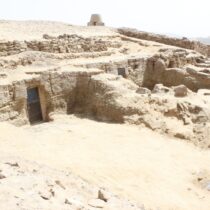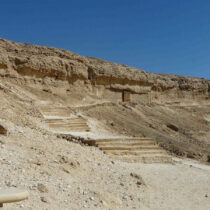A Call for Papers for the workshop “Aqua Paphia: The Use and Meaning of Water in Hellenistic-Roman Nea Paphos and Beyond” has been issued, which will take place on 5-6 July 2024 via an online platform MS Teams.
The workshop will focus on the links between water and the urban and cultural development of ancient Nea Paphos and other Cypriot and Mediterranean cities during the Hellenistic and Roman periods.
We would be delighted if you chose to join us. For more details, please refer to the attached invitation. We would be sincerely grateful if you could extend it to the interested parties.
Deadline for proposals: 30 April 2024
The Aqua Paphia workshop will focus on the role of water in the urban and cultural development of Nea Paphos and other Hellenistic-Roman cities in Cyprus and the wider Mediterranean region. The workshop will address questions such as: How was water provided and controlled within these cities? How did it affect their history and shape? What was its practical and symbolic meaning in the everyday life of the citizens? What can we learn about the local water culture from the archaeological remains? The main goal is to provide a platform for an international and interdisciplinary discussion to broaden our knowledge, identify new directions for future research, and establish optimal methodological practices relevant to the field.
The workshop is tentatively planned to consist of two main sessions, the first focusing specifically on Nea Paphos, and the second on other Cypriot and Mediterranean cities. The final themes for the sessions will be proposed after the completion of the submission review process.
General topics to discuss:
-Recent archaeological discoveries of the water-related installations and artefacts in Nea Paphos and other Cypriot and Mediterranean urban sites of Hellenistic-Roman times
-Results of case studies on ancient urban water systems and their components
-Relationships between water management and local environmental-cultural factors (such as water availability, demography, technological advancement, social habits, policy, religious practices, economy etc.)
-Application of modern research methodology for investigating ancient water infrastructure, including archaeometry and non-invasive methods
-Theoretical aspects of studies on ancient urban water culture
-Water in ancient written and iconographic sources in the context of urban studies
-New insights into the history and development of ancient urban sites derived from the water-oriented research.
Participation in the workshop is free of charge. The discussion will be held online (via MS Teams) to facilitate the participation of researchers worldwide. All interested researchers are kindly requested to send their abstracts, not exceeding 300 words, including the name and affiliation of the author(s), to [email protected] with the subject “Abstract” no later than 30 April 2024. Presentations should be limited to a maximum of 20 minutes and will be followed by a 10-minute discussion. The workshop language is English.
The papers are planned to be published in Travaux de l’Institut des Cultures Méditerranéennes et Orientales de l’Académie Polonaise des Sciences. More details will be provided after the workshop.
Organizing Committee:
Marcin M. Romaniuk, Ph.D. cand., The Institute of Mediterranean and Oriental Cultures Polish Academy of Sciences, [email protected]
Michał Michalik, Ph.D. cand., The Doctoral School in the Humanities Jagiellonian University in Krakow, [email protected]





